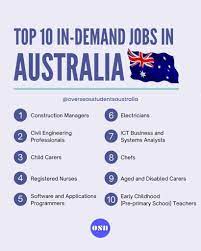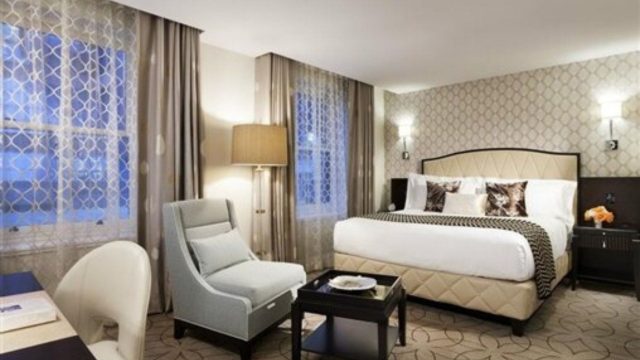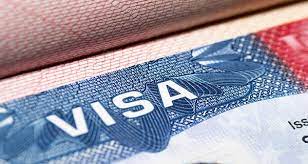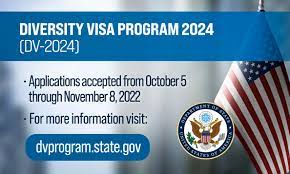Study Visa: Most Asked Visa Interview Questions
A study visa, essential for pursuing education abroad, involves an interview stage that may seem daunting at first. However, with adequate preparation, there’s no need for anxiety. This article presents a compilation of frequently asked interview questions for acquiring a student visa, along with tips to excel in your interview.
Understanding Study Visa:
A study visa, also referred to as a student visa, permits foreign nationals to study at recognized educational institutions in a foreign country. Requirements for obtaining a study visa vary based on the destination country and applicant’s nationality. Common types include J1, F1, and M1 visas.
Typically, applicants must be enrolled in a recognized educational program like a college, university, or language school. Additionally, proof of financial support, health insurance, and a clean criminal record may be necessary. Some applicants might undergo a medical examination and provide biometric data such as fingerprints or photographs.
Once granted, the study visa allows entry into the country for the duration of its validity. In certain cases, the visa may also permit part-time work alongside studies. However, it’s crucial to note that a study visa doesn’t automatically confer the right to work or reside in the country beyond its validity period.
Areas of Focus for Study Visa Interview Questions:
During the study visa interview, visa officers aim to ascertain the applicant’s genuineness as a student and their compliance with visa requirements. Key areas of inquiry may include:
- Study Plans and Academic Background: Questions may revolve around the applicant’s academic history, chosen program, institution selection rationale, and academic aspirations.
- Financial Capacity: Applicants might be asked about their financial ability to cover living and study expenses, including the funding source.
- Intention to Return: Officers may inquire about the applicant’s plans post-study to ensure they don’t intend to overstay the visa and work unlawfully.
- Language Proficiency: Proficiency in the language of instruction might be probed, particularly if it differs from the applicant’s native language.
- Travel History: Previous travel to the destination or other countries may be discussed to evaluate compliance with immigration laws and genuine study intentions.
- Educational Background: Questions about past educational achievements, diplomas, or certificates may be raised.
- Personal Ties: Inquiry into personal ties to the home country, like family, property, or employment commitments, may occur.
Preparation is key; applicants should ready clear, concise responses and provide necessary documents as requested.
Most Asked Student Visa Questions And their Answers.
Below are potential questions for student visa interviews along with suggested responses:
- Why do you want to study in this particular country? Answer: I’m keen to study in this country due to its highly developed education system and reputation for academic excellence. Additionally, I see it as an opportunity for a unique cultural experience and to interact with people from diverse backgrounds.
- Why did you choose this university? Answer: I selected this university based on its outstanding reputation for the program I’m interested in. Through thorough research, I’ve found the faculty, academic facilities, and resources to be impressive. I believe this institution will offer me the best academic experience and aid in achieving my career goals.
- What course are you planning to study, and why did you choose this course? Answer: I intend to pursue [course name] because it aligns with my deep interests and passion. I anticipate gaining valuable knowledge and skills applicable to my future career.
- How long do you plan to stay in the country? Answer: My plan is to remain for the duration of my program, which is [number of years]. Upon completion, I intend to return to my home country.
- What is your academic background? Can you tell me about your previous studies? Answer: I completed my [highest level of education] in [subject] from [institution]. I’ve consistently excelled academically, receiving recognition and awards for my achievements.
- Have you taken any English language proficiency tests? What were your scores? Answer: Yes, I’ve taken [name of English proficiency test], scoring [score]. Additionally, I’ve taken [another English proficiency test], achieving [score]. I’m confident my proficiency is sufficient for academic success.
- How do you plan to finance your education and living expenses while studying? Answer: I intend to finance my education and living expenses through a combination of scholarships, personal savings, and student loans. I’ve meticulously calculated my expenses to ensure sufficient funding.
- Have you applied to other universities? Why did you choose this university over others? Answer: While I’ve applied to [other universities], I selected this one due to its program alignment with my academic and career objectives. Furthermore, I believe it offers unparalleled opportunities for learning and growth.
- What do you plan to do after completing your studies? Answer: Post-graduation, I aim to return home and utilize my acquired knowledge and skills to contribute to my country’s development. Additionally, I’m open to pursuing further studies or research in the future.
- Can you explain how studying in this country will help you achieve your future career goals? Answer: Studying here will provide exposure to diverse perspectives and critical thinking skills crucial for my career. The academic knowledge gained, coupled with the unique learning experience, will greatly benefit my future endeavors.
Tips for Passing a Student Study Visa Interview:
- Submit your application promptly.
- Maintain a positive demeanor.
- Pay full attention during the interview.
- Practice English grammar.
- Ensure all documents are complete.
- Prepare answer templates.
- Arrive punctually and dress appropriately.
- Respond confidently and directly.
- Practice answering potential questions beforehand.
By adhering to these guidelines and practicing responses, success in your interview is within reach.
Advantages of Holding a Student Visa Obtaining a student visa offers numerous advantages, including:
- Legal Status: A student Study visa provides legal permission to study in a specific country, enabling you to attend classes and reside in the country throughout your program without legal complications.
- Access to Educational Opportunities: With a student visa, you gain access to accredited educational institutions, broadening your educational horizons beyond what may be available in your home country.
- Work Opportunities: Many countries allow students with valid visas to work part-time while studying, facilitating financial independence and offering valuable work experience.
- Travel Privileges: Student visas often permit unrestricted travel in and out of the country, facilitating breaks during studies or visits to family and friends back home.
- Cultural Immersion: Studying abroad on a student visa allows for immersion in a new culture and lifestyle, fostering personal growth, broadening perspectives, and enriching experiences.
- Networking: International study fosters connections with individuals from diverse backgrounds, offering opportunities for personal and professional networking that can prove beneficial in the future.
Overall, a student visa can significantly enhance personal and professional growth, offering a unique and enriching experience.
Types of Study Visas (United States) In the United States, two primary types of student visas are available:
- F-1 Visa: Designed for non-immigrant students seeking to study at accredited universities, colleges, or academic institutions. It also encompasses English language programs.
- J-1 Visa: Geared towards exchange visitors participating in approved exchange programs, encompassing study, research, or teaching opportunities. Commonly utilized for cultural or sponsored exchange programs.
Additional categories of student study visa may be available under specific circumstances, including M visas for vocational or technical school students and F-2 visas for dependents accompanying F-1 visa holders. Consulting an immigration attorney or the U.S. Department of State is crucial to determine the appropriate visa type for individual circumstances.





